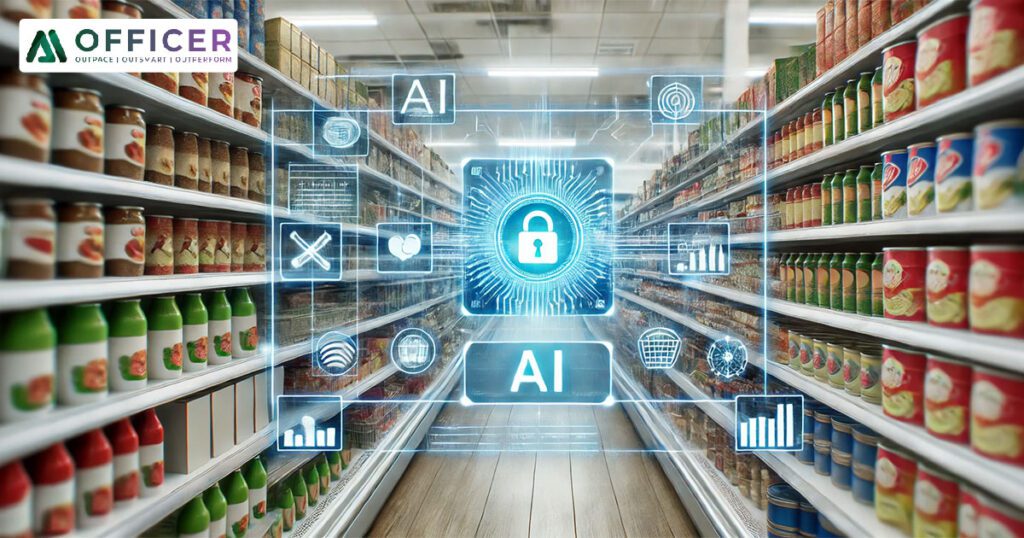
Gone are the days of endless aisle patrols and manual stock checks.
Shelves are always stocked, products are perfectly organized and customer preferences are anticipated before they even step into your store. This is the reality that AI is creating for grocery retailers today.
With the grocery industry projected to gain $113 billion in value from AI by 2025, understanding how these technologies can enhance shelf management is crucial for supermarket owners looking to thrive in a competitive market.
AI-driven solutions not only streamline operations but also empower retailers to make data-driven decisions that enhance the shopping experience.
As we delve deeper into the transformative power of AI, we’ll explore how it optimizes inventory, personalized customer interactions and ultimately drives profitability.
THE AI ADVANTAGE IN SHELF MANAGEMENT
1. Real-time inventory monitoring
One of the most significant benefits of AI in grocery stores is its ability to provide real-time inventory monitoring. AI-powered systems utilize computer vision and machine learning to continuously scan shelves, ensuring that products are in stock and correctly placed. This technology alerts store managers about low stock levels or misplaced items, allowing for quick restocking and reducing the chances of lost sales due to out-of-stock products.
2. Dynamic shelf optimization
AI also excels in optimizing shelf space through data analysis. By examining customer traffic patterns and historical sales data, AI can predict which products are likely to sell well and suggest optimal shelf placements. This ensures that high-demand items are easily accessible, improving the overall shopping experience.
3. Personalized customer experiences
Personalization is key in today’s competitive grocery market. AI can analyze customer purchase histories and preferences to create tailored shopping experiences. For instance, AI can generate personalized promotions or suggest products based on previous purchases, making customers feel valued and understood.
Research shows that 78% of shoppers actively seek the best deals and personalized promotions can significantly increase customer loyalty. By leveraging AI to create customized shopping experiences, grocery stores can foster long-term relationships with their customers.
4. Reducing food waste
Food waste is a pressing issue for grocery retailers and AI can play a pivotal role in addressing this challenge. AI-driven dynamic pricing strategies allow supermarkets to adjust prices in real-time based on factors such as expiration dates and demand fluctuations. This not only maximizes profit margins but also minimizes waste by encouraging customers to purchase items nearing their expiration dates.
The integration of AI into shelf management is not just a trend; it’s a necessity for grocery store owners looking to stay competitive in an evolving market.
By leveraging AI for real-time inventory monitoring, dynamic shelf optimization, personalized customer experiences, and waste reduction, supermarkets can enhance operational efficiency and drive profitability.
At AI Officer, we specialize in providing tailored AI solutions that empower grocery retailers to harness the full potential of these technologies. Our team of experts is dedicated to helping you navigate the complexities of AI integration, ensuring that your supermarket thrives in the digital age.
Stay tuned for more insights on how AI is transforming industries and how you can leverage these advancements for your business.
If you’re ready to take the next step in optimizing your grocery store operations, get in touch with our AI Officers for customized AI solutions tailored to your specific needs.
Together, we can revolutionize your supermarket experience and drive sustainable growth.





